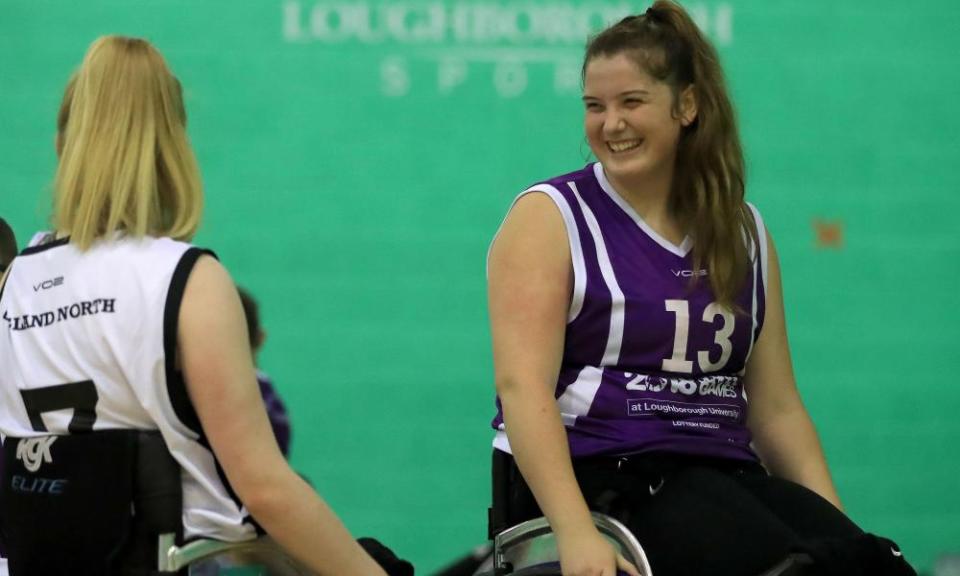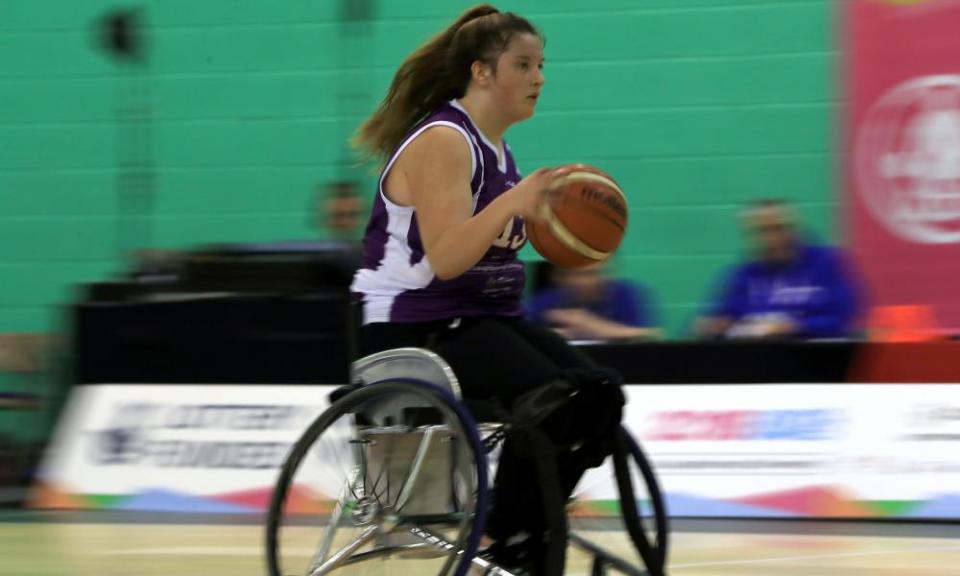Welcome to Britain’s newest televised pro league: wheelchair basketball

“I want it to be big,” says Jade Atkin of the Cardiff Met Archers. “I want people to be saying: ‘you’re on TV, we want to watch you’ and I want people to want to come and I want the sport to do well. We all want the sport to do well. And to be honest, I think that can happen.”
The sport is wheelchair basketball and Atkin, a Great Britain international, is going to be part of a revolution. When the Women’s Premier League taps off for the first time this weekend it will not just create a new professional league in women’s sport, it will be the first ever in women’s parasport in the UK. Four teams – Worcester Wolves, Loughborough Lightning, East London Phoenix and the Archers - will compete for the title and the BBC is committed to showing eight games live, including the final in May.
Related: Revisited: Madison de Rozario’s path to wheelchair-racing fame
“Whenever you see sport on the TV it’s always the men, and always the men making all the money,” says the American Curran Brown, who will play for the Phoenix. “Women as a whole struggle to make a name for themselves in the sporting world and when you put disability with it it’s even lower, it’s not represented at all. I think we have two barriers on top of each other. So I think this is a great beginning, to show what we represent and that we can play toughly as well.”
Wheelchair basketball was the third most watched sport during Channel 4’s Paralympics coverage last year. It’s fast, technical, tactical and easy for newcomers to understand. Supported by a network of 200 clubs and community organisations across the country the British Wheelchair Basketball Women’s Premier League (or BWBWPL for shorter) starts from strong foundations and 1,000 tickets have been sold for Saturday’s opener in Worcester between the Wolves and the Lightning.
The BWBWPL is breaking sporting ground, not just in itself as a competition but by aiming to shift perceptions more broadly. Speak to any Paralympian and they say that the next challenge for parasport is to take the attention and passion that alights on the Games every four years and bring it back into domestic competition all year round. This is a chicken and egg situation to an extent, with the contribution of broadcasters a crucial component but regular compelling competition a pre-requisite too. Women’s wheelchair basketball now aspires to provide that offering.

Beaming parasport (and, as Brown observes, women’s sport too) into the nation’s homes then provides other opportunities. “This is hugely significant in getting disability representation out there,” says Lisa Pearce, the CEO of British Wheelchair Basketball, “and also to help more disabled people across the country and around the world see how incredible this sport is and how great it is to get involved in sport and physical activity.”
Seven in every 10 people who died from Covid in the UK to this point have been registered disabled, but the pandemic has also brought a disproportionate impact on activity levels of people with disabilities more broadly. “It’s completely unacceptable,” says Pearce, “and we need to create more opportunities for disabled people to have sporting and physical activity opportunities. We need to create a platform to have wider conversations too and sport, wheelchair basketball in this instance, offers a great opportunity to have a wider societal discussion about why there are so many systematic issues with disability in this country.”
The opportunities for disabled people to engage in sport are limited and so to is the awareness. Atkin says she did not know about wheelchair basketball herself until a few years ago. At that time she was not disabled herself, but she accompanied her sister as she discovered the sport, forming an enthusiasm of her own. When Atkin later developed the same condition as her sister, a form of hereditary spastic paraplegia, she continued to pursue that passion.
Now Atkin can dream of being someone who people want to watch on TV, and can seek to inspire both other young women and other people with disabilities. Among that audience may be the parasport champions of tomorrow. More importantly, however, there may be more people who simply find the opportunity to fall in love with the sport as Atkin has.
“It’s so much fun”, she says. “Every time I play whether it’s internationally or national league [a mixed sex competition], wherever I play, I play for fun. I play for fun no matter what and that won’t change, it will never change. I love basketball.”
To find out more about the BWBWPL and to buy tickets, go to www.britishwheelchairbasketball.co.uk/womens-premier-league

 Yahoo Sport
Yahoo Sport 





































